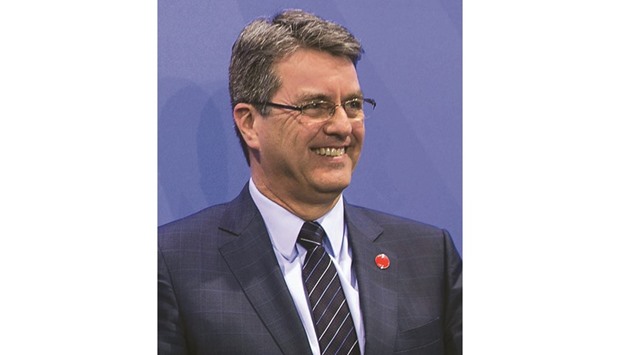Despite the budgetary impact brought on by declining global energy prices, Qatar’s economy has exhibited significant economic growth and development. Qatar ranks second in the world in terms of GDP per capita and the State has wisely anticipated the complications that can arise from overreliance on the export of hydrocarbons, diversifying economic activities by investing in knowledge-based industries including education, infrastructure, and healthcare.
The Qatar National Vision 2030 and the Qatar National Development Strategy 2011-2016 provide a solid framework for conducting needed reforms. It is important to note the Qatar National Development Strategy plans to further liberalise trade in services under the WTO’s General Agreement on Trade in Services. Diversification and investment in service sectors such as transportation, construction, and tourism has helped boost the economy in recent years and this stimulus is expected to continue in the lead-up to the 2022 FIFA World Cup, as Qatar expands hotel capacity, develops a rail network, and invests in large-scale infrastructure projects.
Qatar has a solid vision for its people and its economy. Trade and the WTO have already helped to implement this vision and will continue to do so. In light of Qatar’s vision for the country to become a trade and financial hub, reducing the time and cost of moving goods across the border can make a big difference. The WTO’s new Trade Facilitation Agreement (TFA), concluded at our Ministerial Conference in Bali in 2013, is designed to help with exactly this problem.
A report issued by the WTO last year found that, if fully implemented, the TFA could reduce trade costs of members by an average of 14.5%. For developing economies alone, it could boost their exports by almost $730bn per year.
By making trade flow more easily, this agreement can also support Qatar’s economic diversification and focus on services. The TFA could help developing countries to increase the number of new products exported by as much as 20% and it could help them enter 30% more foreign markets. However, in order to benefit from the agreement, first it must be ratified. This is one immediate and very positive step that Qatar could take.
Another potentially fruitful area for Qatar is the WTO’s Information Technology Agreement (ITA). Qatar is a member of the initial ITA agreement that has been upgraded by 53 WTO members during our Ministerial Conference held in Nairobi, Kenya, last December. This deal will eliminate tariffs on 201 additional IT products, including latest generation semiconductors, GPS devices, advanced medical products and machine tools. Trade in these products is worth around $1.3tn each year — that’s 10% of global trade. This is larger than global trade in automotive products.
The expanded ITA will lower the costs of doing business for companies of all sizes. It will support lower prices — which will help many other sectors using IT products as inputs — and, again, it will help create jobs.
With the TFA and ITA the WTO has delivered two deals in two years which can provide economically significant results for Qatar. As we look ahead to 2016, and beyond, we need to work towards further trade agreements which enhance growth and development in Qatar and across the Gulf Cooperation Council. WTO members want to deliver more results, more quickly. It is clear that all of our members want to tackle the big, outstanding trade issues, such as agriculture (where market access and domestic subsidies would be obvious priorities), market access for industrial goods, services and fisheries subsidies. There is a strong desire to maintain development at the centre of our efforts.
A debate is currently under way about the precise shape that this future work should take, and whether other, additional issues might be brought to the table. I urge Qatar to make its voice heard in that debate. By building on elements of consensus and learning from our recent successes, I am confident that we can deliver further, much-needed reforms to global trade rules.
Trade, and the global trading system embodied in the WTO can help Qatar realise the vision it has for its people and its economy, showing real leadership for its region. As we look ahead, we want to be partners in that journey. I look forward to discussing all of these issues with the leaders of Qatar this week.
• Roberto Azevêdo is director-general, World Trade Organisation.
Twitter: @WTODGAzevedo

Roberto Azevu00eado
